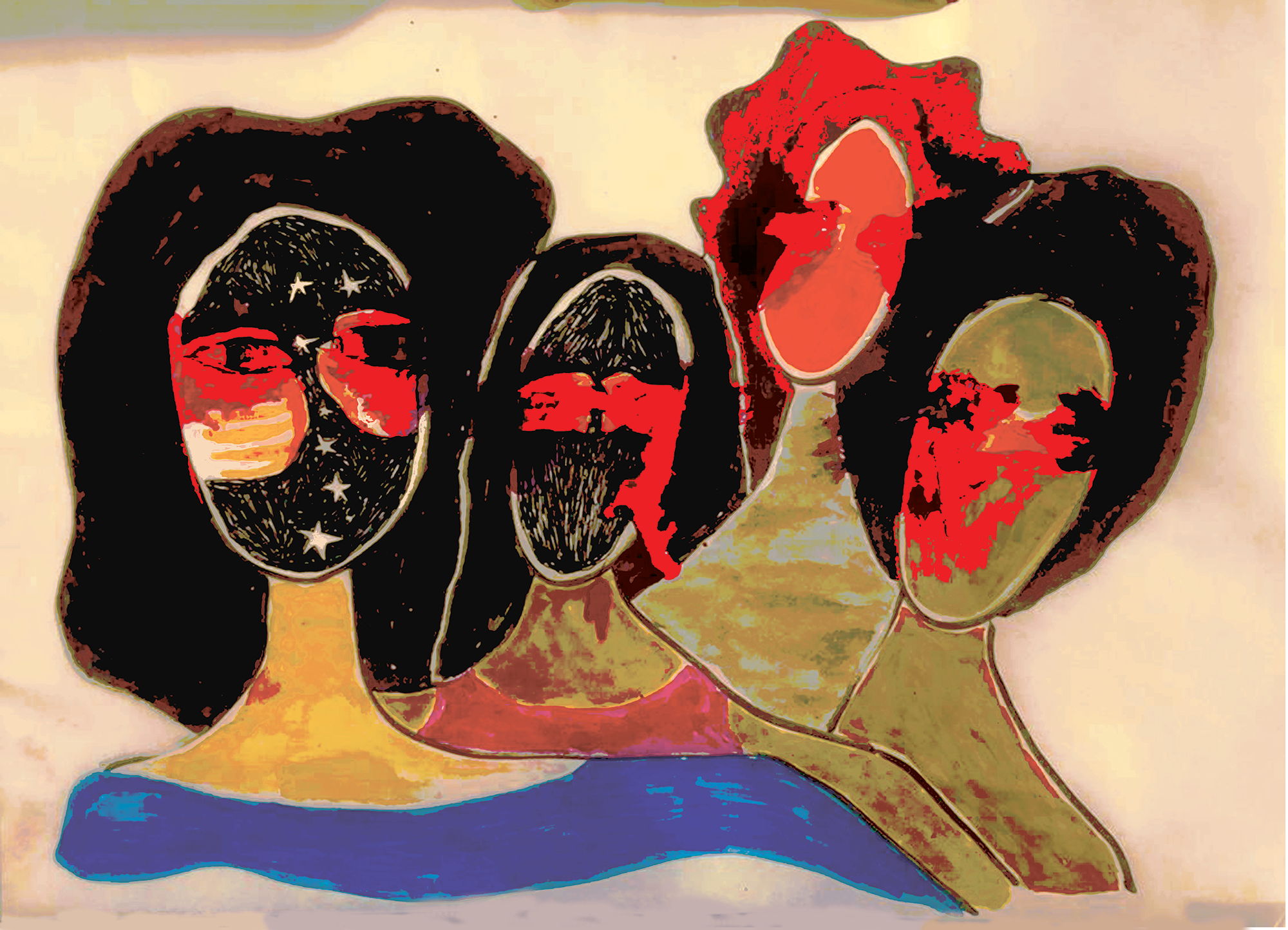Tulipa Ruiz is a brazilian singer and songwriter, Latin Grammy Award winner for Best Contemporary Brazilian Pop Album. She has performed in many American, European and Asian stages, and composed for artists such as Elza Soares, one of her biggest idols. Tulipa is also an illustrator: she collaborates with the brazilian edition of the french newspaper Le Monde Diplomatique, in addition to working in the art of making albums, books and music videos.

Aprendi com o pianista João Donato – nome fundamental na história da música brasileira – a divagar sobre o atemporal. Ele estava presente nos anos 1950, quando nutria com jazz e afro-latinidades seus contemporâneos de bossa nova, e em 2020, em turnês e colaborações com artistas da cena atual, na qual me incluo. Seus olhos brilham ao fazer música, assim como os da cantora Elza Soares. Brilho e sangue. Sangue nos olhos. Percebo outros olhos assim, como os da atriz Fernanda Montenegro, do músico Mateus Aleluia e do dramaturgo José Celso Martinez Corrêa, para somar com outros exemplos longevos. O colágeno criativo desses artistas deve-se à presença deles no agora. Seja ele [o agora] em 1950 ou 2020. O atemporal é assim, prezadíssimos ouvintes – sempre presente no agora. Por isso, ele não expira. Os movimentos de vanguarda também são parecidos – a partir de uma absoluta consciência do agora, é possível posicionar-se à sua frente.
A compreensão do nosso tempo, do que nos é contemporâneo não é sinônimo de adequação a ele, muito ao contrário. A experiência de contemporaneidade tem a ver com questionar e enfrentar a época em que vivemos. E, exatamente agora, vivemos, no Brasil, uma época impossível de ser ignorada – “político-apocalíptica” –, que nos impacta social e espiritualmente; que espanca e mina nossas subjetividades; que trata as trabalhadoras e os trabalhadores da arte como inimigos. Exatamente agora, em nosso país, existe um governo que menospreza a educação e a cultura, que tem uma relação bélica com a diversidade, com os movimentos sociais, com o protagonismo feminino, com as expressões individuais e coletivas; que optou por desconsiderar o patrimônio imaterial que a arte é. Vejam só! Logo a arte, que tem o poder de traduzir a identidade de um lugar ou de um estado de espírito, que inspira, fortalece, instiga, passa a língua no céu da boca das nossas subjetividades – as que existem e as que serão inventadas. O governo neofascista detesta tudo isso, e quer tacar bomba em qualquer expressão que encoraje o pensamento crítico. Simples assim. Complicado.
Exatamente agora, o Estado não quer diálogo. Mas a arte é algo maior, pois está à frente, é atemporal. A arte é uma conversa que não tem fim, para começo de conversa. Neste exato minuto, ser artista no Brasil é não emudecer diante de todo esse desmanche, é falar mesmo com nó na garganta. Não dá para passar batido, nem pano. Estamos na mira, presentes e com sangue nos olhos.
English Version
Artist!? What, Right Now?

I learned from pianist João Donato – a major name in the history of Brazilian music – how to digress about timelessness. He was present in the 1950s, when he nurtured his bossa nova contemporaries with jazz and Afro-Latinity, and in 2020, on tours and collaborations with artists from the current scene, in which I include myself. His eyes shine when making music, just like those of singer Elza Soares. Brightness and blood. Blood in the eyes. I can perceive other eyes like that, like those of actress Fernanda Montenegro, musician Mateus Aleluia and playwriter José Celso Martinez Corrêa, to add up to other long-lived examples. The creative collagen of these artists stems from their presence in the now. Be it (the now) in 1950 or 2020. Timelessness is like that, dear listeners – always present in the now. That’s why it does not expire. The avant-garde movements are also similar – from an absolute awareness of the now, it is possible to position yourself ahead of it.
The understanding of our time, of what is contemporary to us doesn’t mean adapting to it, quite the contrary. Experiencing contemporaneity has to do with questioning and facing the times in which we live. And, right now, in Brazil, we are living in a time that can’t possibly be ignored – “political-apocalyptic” –, one that impacts us socially and spiritually; that beats and undermines our subjectivities; that treats art workers as enemies. Right now, in our country, there is a government that despises education and culture, that has a warlike relationship with diversity, social movements, female protagonism and individual and collective forms of expression; one that chose to disregard the intangible heritage that art is. Look at that! And with no less than with art, which has the power to translate the identity of a place or a state of mind, which inspires, strengthens, instigates, reaches our inner subjectivities – those that exist and those that are yet to be invented. The neo-fascist government hates all of it and wants to annihilate any form of expression that encourages critical thinking. That simple. Complicated.
Right now, the state does not want dialogue. But art is something bigger. Indeed, it stands ahead, it is timeless. Art is a conversation that has no end, to begin with. In this very minute, being an artist in Brazil means avoiding choking up in the face of all this dismantling, it means speaking up even with a lump in your throat. You can’t turn a blind eye or throw the towel. We are being targeted, we are present and with blood in our eyes.
/ Translation by Saoussen Khalifa
